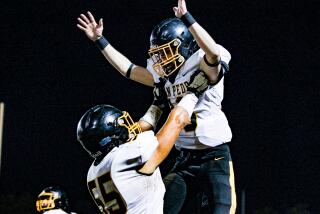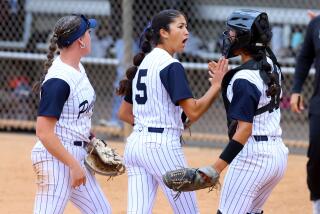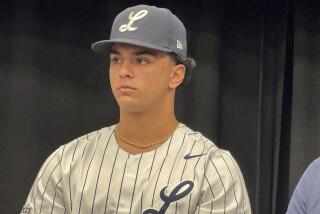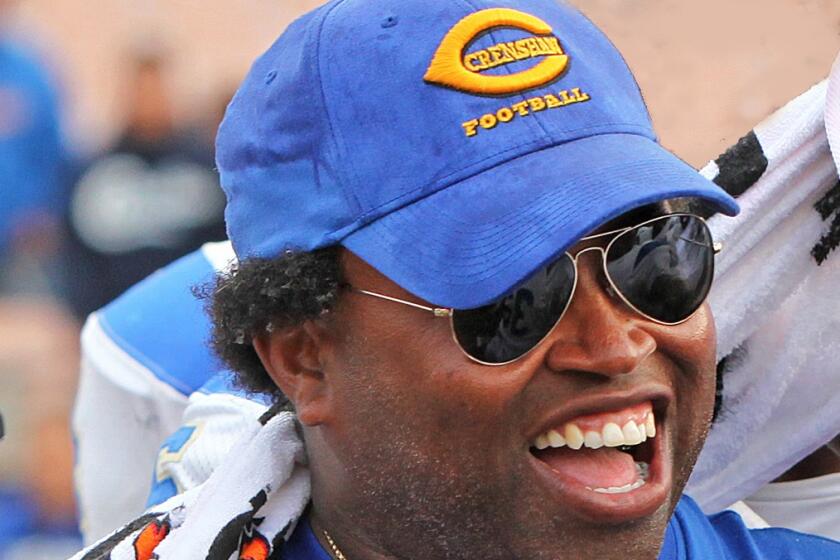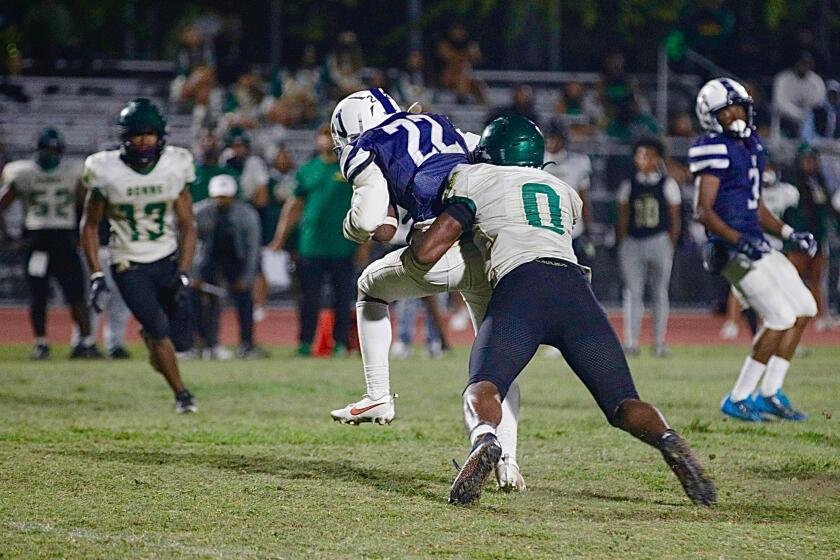Marinersâ Pines Gets Up Close, Personal When Heâs Scouting : Baseball: In addition to evaluating players on Seattleâs winter and rookie league teams, he coaches at Santiago High.
GARDEN GROVE â Seattle Marinersâ scout Myron Pines has a different perspective when it comes to evaluating potential major league players.
While most scouts are content to sit in the stands and watch, Pines gets a closer look--from the dugout.
Pines is in his seventh season as baseball coach at Santiago High School, where he helped turn around a struggling program. Last year, he led the Cavaliers to their first outright league championship since 1969.
Pines also coaches the Marinersâ winter league team for six months during the off-season at Loara High on Sunday afternoons. If thatâs not enough, he has coached a Mariner rookie league team during the past four summers.
âIâm in a unique situation,â Pines said. âIâm a part-time scout and full-time coach, although the scouting takes up most of my time. I think I have an advantage over most scouts because I can study a playerâs mental makeup more closely.
âThere are thousands of kids who have the physical tools to play professional baseball, but itâs a playerâs mental approach and work ethic that keeps him in the game.â
Pinesâ winter league team plays doubleheaders on Sundays at Loara, completing a 50-game schedule about a week before the high school season begins. The league is composed of players ages 16-23.
Pines evaluates about 30 players on his team during the course of the season, filing written reports to the teamâs scouting supervisor. Pinesâ role with the Marinersâ scout team is a bit more low-key than his one at Santiago.
âBasically, Iâm an organizer for the team,â he said. âI do very little teaching. The team will report several hours before our games and weâll have a workout, but mostly we play games and I evaluate players in game situations.â
Pines also teaches a sixth-period baseball class at Santiago during the off-season, but spends most of his time scouting the 500 players on the 12 teams in the winter league.
âI donât have any of my own players on the team, so Iâm coaching kids like Kennedyâs Scott Jones, who just beat us Monday in our game at Santiago,â he said. âThe great thing about the winter league is that kids play their natural position. The pitchers are just that, pitchers. They donât play shortstop or first base when theyâre not pitching like they do in high school.
âItâs a no-pressure situation and the atmosphere is conducive to good players. We use wooden bats and a lot of professional scouts and college coaches get to see the kids. I find Iâm always evaluating. If I see a kid on another team who might interest the Mariners, Iâll talk to his coach afterward to find out all I can about him.â
Four years ago, Pines added another aspect to his scout/coach resume when he was named to coach the Marinersâ entry in the Northwest League at Bellingham, Wash. For the past three years, heâs concluded his season at Santiago and coached a rookie team in Tempe, Ariz.
âIdeally, Iâd like to coach professionally, but youâre away from home so much and Iâm a family man first,â Pines said. âI enjoy the challenge of scouting.
âThereâs some guesswork involved, so I like to see a player several times before I make a report. The winter league serves as a cross-check for me and then Iâll follow-up when I start coaching the rookie team.â
Pines said his reports are often detailed, depending on a prospectâs future and potential in the organization. He grades a playerâs present and future ability on a scale of two to eight (five is average).
âThe science of scouting is being able to predict if a player will continue to mature and excel as he gets older and moves up in the organization,â Pines said. âYou may have a player high on your list, but how does he fit on the national scene? Where does he fit in the big picture?â
More to Read
Go beyond the scoreboard
Get the latest on L.A.'s teams in the daily Sports Report newsletter.
You may occasionally receive promotional content from the Los Angeles Times.
